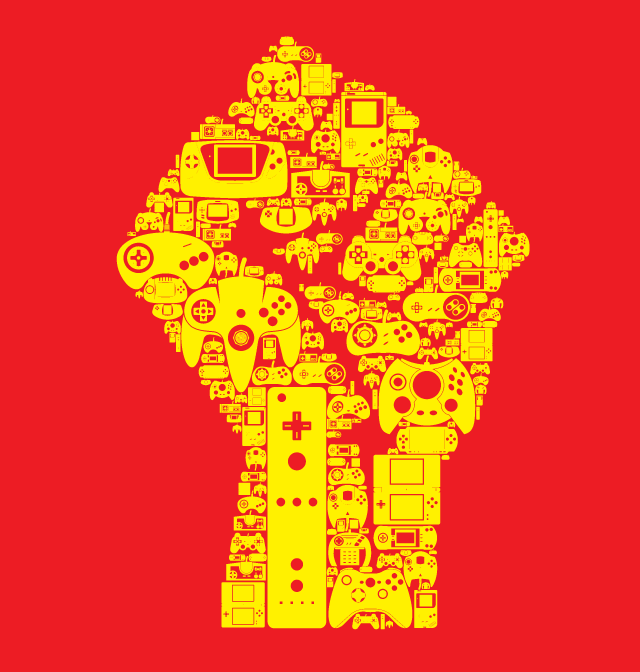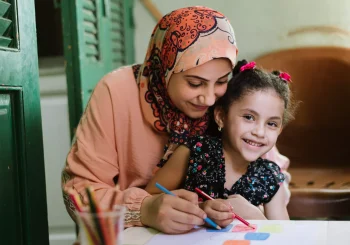Like the real world, in the video-game world you are often faced with a series of problems and obstacles. The difference is that in the video-game world, gamers often overcome these problems in search for a better future.
In the real world, when faced with a problem that we fail to overcome, we often just give up. In the video game world you never give up: from shaking the joystick violently every time you fail, to cursing at your monitor – eventually you are able to find a way to overcome the obstacle.
Egypt needs more gamers. It is from gaming that many have been able to develop the ability of ‘critical thinking’ in regards to how to approach a problem. It is a shame that many employers and the general media fail to see this, and instead disregard gaming as ‘a waste of time’.
However, overcoming problems and becoming a better ‘person’ in the game world is largely centered on cooperation with others. In Gearbox Software’s latest game, Borderlands 2, the player has to save Pandora (a fictional world) from the evil dictator, Handsome Jack. The game, which can be played with up to 3-other players, encourages team-work and strategy in order to overcome the various challenges that the player faces: from defeating alien-like creatures with tentacles that spread a mile away, to gathering resources and information. Without this team-work, progressing through Borderlands 2 becomes very difficult.

Now let us imagine that Pandora is Egypt. Through youth-organized protests, cooperation, and critical strategy, Egyptians were able to force Hosni Mubarak, commonly seen as a dictator/autocrat, to step down after 30-years of rule. Without this organized effort, the revolution would have most likely failed.

However, what Borderlands 2 does not cover is what comes after removing the villain, Handsome Jack: rebuilding the country and achieving a better future. Like the game, the ‘revolutionaries’ in Egypt have simply disappeared since the ouster of Mubarak. It is as if they thought the removal of Mubarak, and no further action, means they have won.
This brings me to the extremely popular massively multiplayer online role-playing game, World of Warcraft. In this game, players work collectively, to some extent, to improve their online-world through a series of quests. In 2005 an epidemic broke out in this online world, and hundreds of thousands of players became infected with ‘corrupted blood’. Some people, considered as ‘terrorists’, intentionally spread the disease, while others worked together in order to cure the infected and find a way to stop it from spreading any further. Eventually they succeeded, and the epidemic was gone (also thanks to a bit of help from the producers).

What this shows is the power of collective team-work and unity. Egypt is in dire need of this to improve. Unity is the underlying pillar of a stable, secure, and prosperous country. When I read about tensions between Muslims and Christians, Liberals and Christians, the poor and the rich, I can’t but wonder whether Egypt will ever improve without unity.
Again, Egypt needs more gamers. Why? To realize the power of unity and that team-work allows for the defeat of obstacles along the path for a better Egypt. Simply electing a new president through democratic means does not guarantee development. Maybe by having more Egyptians play games, they will realize that they need to work together for a common goal and help one another achieve it.
“In union there is strength” – Aesop
This is part one of a two part blog post. The second part will tackle the gaming-culture of Egyptians. Check back again soon!








Comments (13)
The link between video games and the real world has never been so clear, now that online gaming has opened up avenues of collaboration with many others. Gaming has always had the ability to effect, or at least encourage, social change, even in its infancy. Super Mario Bros, showed us how two brave, working class immigrants can be motivated by injustice (the kidnapping of Princess Daisy) to take on a ruling elite who violently and cruelly oppress others. I agree with you that the level of organization seen in the Egyptian uprising would not have been possible without the discipline instilled through video gaming. Mubarak should be thankful that he didn’t go the way of King Koopa, with someone jumping on his head.
You’re absolutely correct. From when we’re young, we are taught about various crucial aspects, such as standing up to an evil leader. I loved your use of Super Mario in that comment!
A weak parallel at best, no deeper meaning. Yes, we are all well aware that unity fosters strength. Yes, we aware that video games might possibly help your critical thinking skills. But you know what? So does a job. Human interaction. School. University. Cocktail parties. Walks in the park. Reading. Rubix cubes. Sudoku. If I had inserted any of these into your form article, it would have made sense. If you’re going to make a case for video games, make it a strong one. Otherwise don’t bother writing.
That is why I related this specifically to Egypt. Egypt has more than 20% unemployment. Yes schools and universities are free, but many don’t get an education due to the lack of job opportunities. Parks? Cocktails? Once again, we’re talking about Egypt here.
This article was showing ONE way in which Egyptians can improve their unity and help build a better Egypt. Nowhere did I state that video-gaming is the ONLY possibility. From playing games – learning that failure can eventually mean success, and finding out that cooperation with others leads to more successful results – Egyptians could possibly learn more about team-work, unity, etc.